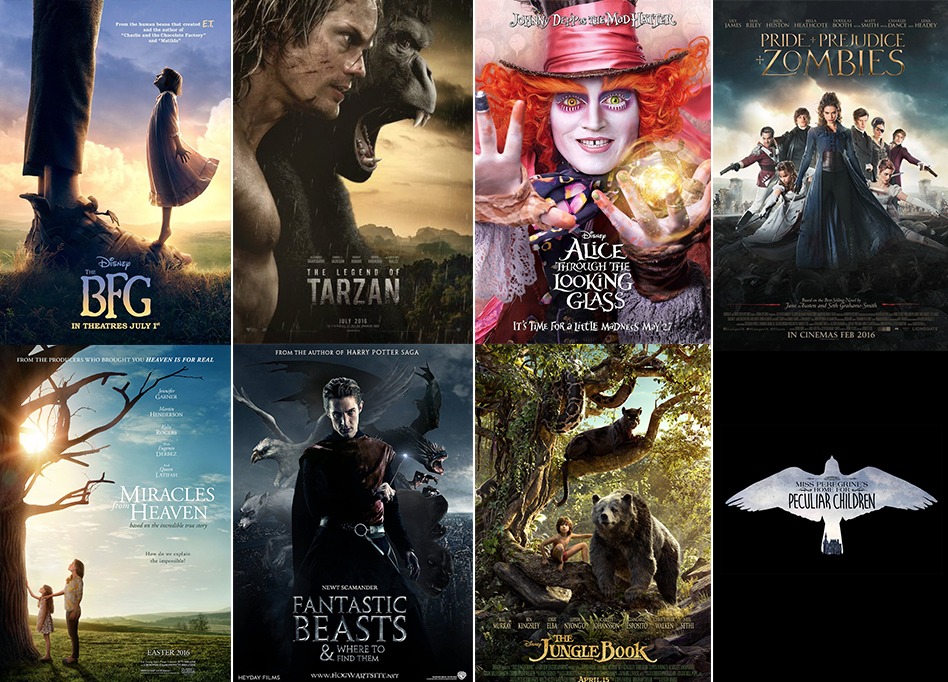If you’re seeking compelling **science fiction recommendations**, look no further than the curated list from Harvard faculty and staff that delves into the intricate connections between humanity and artificial intelligence. From cautionary tales about censorship in science fiction to explorations of our species’ essence, these selections invite readers to reflect on important questions concerning AI and literature. The best sci-fi books not only entertain but also challenge our perspectives on technology and the direction of society. As we navigate the complexities of modern life, embracing these narratives can inspire fresh insights and provoke critical discussions about our future. Join us as we explore unique titles that highlight the interplay between imagination and reality.
Diving into the realm of speculative fiction offers a treasure trove of thought-provoking narratives that transcend mere entertainment. Alternative titles recommended by experts explore critical themes such as the implications of censorship, the evolution of artificial intelligences, and the fundamental traits that delineate humanity within these crafted worlds. Engaging with these literary gems not only expands our understanding of societal challenges but also encourages readers to ponder the ethical dimensions of technological advancement. Whether you’re a seasoned aficionado or a newcomer to the genre, these faculty-curated selections promise to enrich your experience with insightful reflections on contemporary issues.
Exploring Humanity Through Science Fiction
Science fiction offers a profound lens through which to explore the intricate nature of humanity. As stories unfold in futuristic settings, they probe the depths of what it means to be human. Whether grappling with ethical dilemmas posed by artificial intelligence or examining the emotional landscapes of characters facing extraordinary circumstances, these narratives challenge readers to reflect on their own humanity. For instance, in Karen Brennan’s recommendation of “Blindsight,” the disconcerting encounters with non-human intelligence force us to reconsider the very essence of consciousness—a trait that many consider the hallmark of being human.
In literature like “A Rover’s Story” by Jasmine Warga, we witness a heartwarming yet eye-opening perspective as a Mars rover, Res, engages with human emotions through coded communication. This narrative invites discussions on emotional connectivity in an age of burgeoning AI presence. As machines become increasingly integrated into our lives, stories that highlight the importance of human experiences and emotions resonate more than ever, reminding readers that while technology evolves, the core human experience remains irreplaceably unique.
Recommended Sci-Fi Reads by Harvard Faculty
Harvard faculty members have their finger on the pulse of contemporary science fiction, recommending works that not only entertain but also challenge societal norms and ideas surrounding technology and humanity. From Peter Watts’ unsettling narrative in “Blindsight” to the surreal exploration of communication in Stanislaw Lem’s “Solaris,” these books provoke thought about artificial intelligence and the future of human interaction. Faculty recommendations serve as a guide to understanding complex themes within the genre, and offer insights into how these stories reflect the realities we face today.
Additionally, the dystopian warnings present in classic works like Ray Bradbury’s “Fahrenheit 451” offer essential reflections on contemporary issues such as censorship and the control of information. Saviano’s endorsement of this novel highlights the importance of literary engagement as a countermeasure to society’s distractions. Through these recommended reads, Harvard faculty illuminate the significance of science fiction in shaping our understanding of emerging technologies and their implications on our social fabric.
The Intersection of AI and Literature
As artificial intelligence continues to seep into every aspect of modern life, its intersection with literature provides fertile ground for exploration in science fiction. Works like “Blindsight” address the complexities of AI by asking difficult questions about sentience and the ethical implications of creating machines that may surpass human capabilities. This blending of AI and literature not only pushes the boundaries of traditional storytelling but also compels readers to confront pressing concerns about our future coexistence with technology.
Moreover, narratives in sci-fi often act as case studies for ethical considerations in AI deployment. Authors like Han Song, whose work “Exorcism” critiques societal censorship, challenge readers to reflect on the potential consequences of unchecked technological power. As we read these stories, we engage in a dialogue about AI responsibility and the moral dilemmas of creating entities that may think and feel in unexpected ways, prompting us to think critically about the future we’re crafting.
Censorship Themes in Modern Sci-Fi
Censorship occupies a central theme in many contemporary works of science fiction, reflecting real-world struggles against oppressive regimes. For instance, Han Song’s “Exorcism” explores the ramifications of state censorship in a dystopian setting where the universe itself is at war with the suppression of knowledge. By melding science fiction with socio-political commentary, these narratives deepen our understanding of the implications of censoring creative expression and the importance of preserving intellectual freedom in the face of overwhelming control.
Similarly, Ray Bradbury’s “Fahrenheit 451” serves as a critical reminder of the fragility of knowledge and the dangers of complacency. In a world increasingly dominated by distractions and digital entertainment, Bradbury warns against the dulling of curiosity and the erosion of critical thought. By examining these works that tackle censorship, readers gain insight into the delicate balance between liberty and control, and the vital role that literature plays in safeguarding our freedoms.
Humanity and Connection in Sci-Fi
The exploration of humanity and emotional connection in science fiction is a recurring motif that resonates deeply within the genre. In Amy Deschenes’ recommendation of “A Rover’s Story,” the narrative beautifully encapsulates how machines can evoke human emotions and foster connections despite their mechanical nature. As a Mars rover communicates with human characters, readers are prompted to reflect on the multifaceted nature of relationships and how technology shapes our understanding of companionship.
Moreover, the dynamics of human connection in the face of advancing technology serve as a pivotal discussion point. These stories challenge the notion of machine versus human by presenting scenarios where both coexist, often highlighting the strengths and vulnerabilities of each. Through these narratives, science fiction not only entertains but also invites vital conversations about what it means to remain fundamentally human in an increasingly automated world.
Literary Insights from Harvard’s Faculty
The recommendations from Harvard’s faculty encapsulate a range of science fiction literature that spans generations, offering insights into the genre’s evolution. Faculty members emphasize not only the entertainment value of these works but also their capacity to challenge societal norms and stimulate critical thinking. Through the lens of these educators, we see how literature can act as a tool for understanding complex themes such as AI, censorship, and the essence of humanity.
These recommendations underscore the importance of literature as a mirror reflecting the anxieties and aspirations of contemporary society. As faculty engage with these sci-fi narratives, they illuminate the capacity of storytelling to influence thoughts on the future of technology and our place within it, positioning science fiction not just as a genre but as a crucial medium for intellectual exploration.
The Future of Literary AI
As we navigate the rapidly changing digital landscape, the future of AI in literature raises profound questions about creativity, authorship, and originality. Current advancements in AI technology prompt discussions about what role machines will play in the creation of literature. Are AI-generated narratives capable of evoking the same emotional connections as those crafted by human hands? This question creates a fascinating intersection between technology and art, where science fiction can serve as both a commentary and a prediction of future possibilities.
Literary AI also presents opportunities for new storytelling methods. Authors are incorporating AI elements into their works, creating unique narratives that reflect the duality of human emotion and machine logic. As readers and creators explore these evolving narratives, they are challenged to rethink the boundaries of creativity and intelligence, ultimately igniting debates about the implications of AI’s role in our literary landscapes.
Educational Value of Sci-Fi Literature
The educational value of science fiction literature lies in its ability to engage students with complex themes related to science, technology, and society. Works recommended by Harvard faculty not only entertain but also serve as educational tools that illuminate critical thoughts on ethics, societal change, and the implications of technological advancements. By incorporating sci-fi into educational curriculums, institutions can foster an environment conducive to discussions on innovation, ethics, and the future of humanity.
Additionally, these narratives encourage students to examine their perceptions of reality and challenge them to think critically about current events and potential futures. As students engage with the ethical dilemmas and speculative scenarios presented in sci-fi literature, they acquire tools for analyzing the world around them—tools that may prove invaluable as they step into an increasingly complex and interconnected future.
Dystopian Futures and Cautionary Tales
Dystopian narratives serve as cautionary tales about the potential pitfalls of current societal trends, making them a staple within the science fiction genre. Both Bradbury’s “Fahrenheit 451” and Lem’s “Solaris” exemplify how dystopian scenarios can offer critical insights into the consequences of unchecked technological progress and societal complacency. These works remind readers of the importance of vigilance in preserving both freedom and individuality in the face of societal pressures.
Through the exploration of dystopian futures, science fiction provides a reflective space for readers to consider the implications of their choices and actions in the present. The narratives challenge us to envision alternate realities and speculate about potential futures shaped by our current trajectories, thereby encouraging proactive engagement with the world around us.
Frequently Asked Questions
What are some of the best sci-fi books recommended by Harvard faculty?
Harvard faculty members recommend a variety of impactful science fiction books, such as ‘Blindsight’ by Peter Watts, which explores themes of artificial intelligence and consciousness. Another notable recommendation is ‘Solaris’ by Stanislaw Lem, focusing on the complexities of communication with an alien intelligence. Additionally, ‘A Rover’s Story’ by Jasmine Warga invites readers to reflect on humanity and AI relationships, making these works essential for those seeking the best sci-fi books.
How does censorship in science fiction affect the genre’s themes?
Censorship in science fiction, as seen in Han Song’s ‘Exorcism’, often amplifies the genre’s themes of resistance and the questioning of authority. The struggle to convey dark narratives reflects societal issues, highlighting the importance of freedom in literature. Such censorship can mold thought-provoking discussions around humanity’s future, artificial intelligence, and the consequences of controlled narratives.
What role does AI and literature play in modern science fiction?
AI and literature are central to many contemporary science fiction narratives, as demonstrated in books like ‘Fahrenheit 451’ by Ray Bradbury. This classic addresses the implications of technology and censorship on human thought and creativity. Modern works like ‘Blindsight’ also interrogate the nature of consciousness and the potential for AI to redefine our understanding of intelligence, showcasing how AI is reshaping literature and prompting critical dialogue about its impact on society.
Can science fiction explore the concept of humanity effectively?
Yes, science fiction is uniquely positioned to explore the concept of humanity. Books such as ‘A Rover’s Story’ encourage readers to reflect on human emotions in contrast to AI experiences, prompting discussions on what it means to be human. Similarly, titles like ‘Solaris’ delve into the limits of human understanding and connection with other forms of intelligence, reinforcing sci-fi’s role in examining our humanity in an evolving technological landscape.
What essential sci-fi books explore the theme of censorship?
Key sci-fi books exploring censorship include ‘Fahrenheit 451’ by Ray Bradbury, which serves as a cautionary tale against the suppression of literature and thought. This theme resonates deeply in contemporary discussions about technology and information control, reinforcing the notion that preserving intellectual freedom is critical in both literature and society. ‘Exorcism’ by Han Song, despite its censorship, highlights the struggle against narrative control, making these works crucial reads.
| Recommendation | Author | Key Themes |
|---|---|---|
| Blindsight | Peter Watts | Explores the concept of consciousness and artificial intelligence, questioning if self-awareness is necessary for intelligence. |
| Solaris | Stanislaw Lem | A meditation on communication, existence, and humility when faced with the incomprehensible. |
| A Rover’s Story | Jasmine Warga | Explores emotional connections between humans and AI, emphasizing what makes us human. |
| Exorcism | Han Song | Addresses censorship and reality perception, urging readers to create their own narratives. |
| Fahrenheit 451 | Ray Bradbury | A warning against censorship and the dangers of a passive consumption culture in the age of technology. |
Summary
For readers seeking profound insights through the lens of futuristic exploration, science fiction recommendations from Harvard faculty provide a rich tapestry of thought-provoking narratives. These titles challenge our understanding of humanity, technology, and society, making them essential reads in today’s rapidly evolving world. Whether grappling with the implications of artificial intelligence in ‘Blindsight’ or reflecting on the nature of knowledge in ‘Fahrenheit 451,’ each book serves as a guide to navigate the complexities of our times and beyond.



